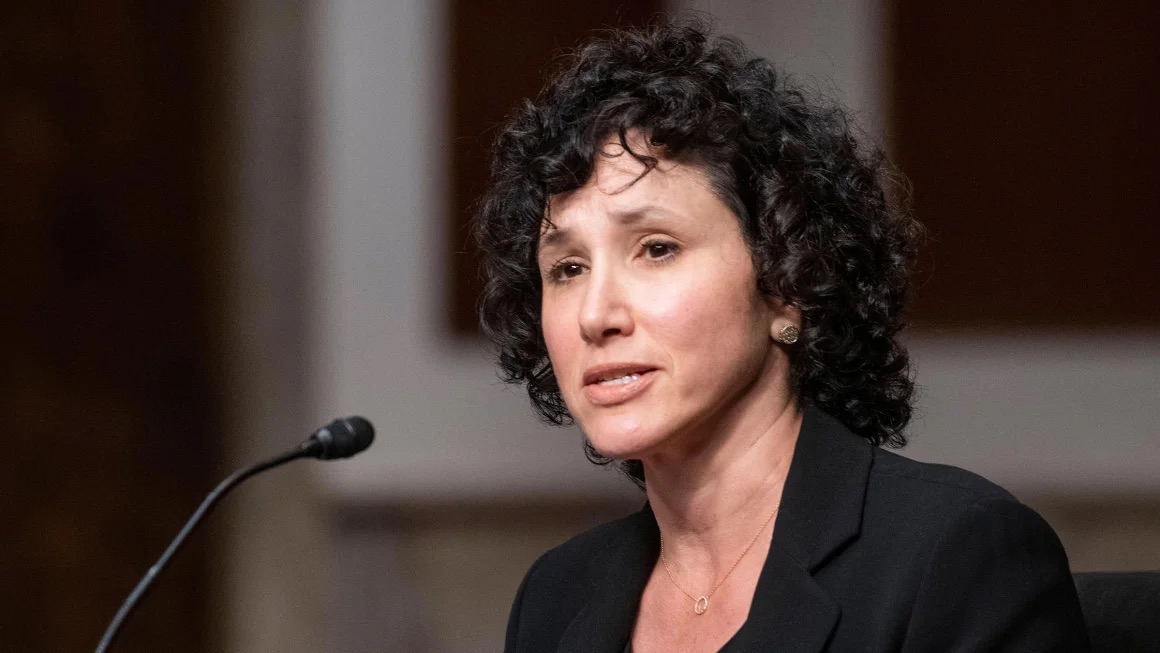WASHINGTON, USA — A second federal judge has blocked President Donald Trump’s executive order seeking to end birthright citizenship, marking a major legal setback for the administration’s controversial immigration policy.
U.S. District Judge Deborah Boardman issued a nationwide preliminary injunction on Wednesday, ruling that the executive order is likely unconstitutional and directly contradicts the plain language of the 14th Amendment.
Boardman, who presides in Maryland, emphasised in her ruling that any court has never upheld Trump’s interpretation of the 14th Amendment.
“No court in the country has ever endorsed the president’s interpretation,” she said during the hearing on Wednesday, February 5, 2025.
“This court will not be the first.”
She further rebuked the order, stating that it “conflicts with 125-year-old Supreme Court precedent and runs counter to our nation’s 250-year history of citizenship by birth.”

In this 2021 photo, Deborah Boardman appears before a Senate Committee on the Judiciary hearing regarding her nomination to be a United States District Judge for the District of Maryland. | Rod Lamkey/MediaPunch/Alamy
Legal Challenges and National Injunction
Trump’s Day 1 executive order, which sought to deny automatic U.S. citizenship to children born on American soil to undocumented immigrants, was immediately met with legal challenges.
Last week, another federal judge issued an initial temporary halt on the policy.
Boardman’s ruling extends that block nationwide, preventing the administration from enforcing the order while the case proceeds through the courts.
The lawsuit in Maryland was filed by five pregnant women who argued their babies would be directly impacted, along with two immigrant rights organizations advocating for birthright citizenship protections.
Boardman stressed that a nationwide injunction was necessary to provide relief to the groups involved.
“The government will not be harmed by a preliminary injunction that prevents it from enforcing an executive order likely to be found unconstitutional,” she wrote.
What Comes Next?
The ruling sets up a lengthy legal battle that is expected to reach the U.S. Supreme Court.
The Justice Department has not yet commented on whether it will appeal Boardman’s decision.
Trump’s legal team is expected to challenge the ruling, arguing that the 14th Amendment has been misinterpreted for more than a century.
Immigration advocates hailed the decision, calling it a crucial victory for constitutional rights.
Despite the legal roadblocks, Trump has vowed to continue pursuing policies aimed at restricting immigration, a central theme of his presidency.
A Historical Challenge to Birthright Citizenship
Birthright citizenship is guaranteed under the 14th Amendment, ratified in 1868, which states:
“All persons born or naturalized in the United States, and subject to the jurisdiction thereof, are citizens of the United States and of the state wherein they reside.”
In United States v. Wong Kim Ark (1898), the Supreme Court firmly established that children born in the U.S. to non-citizen parents are automatically granted citizenship.
Trump’s order sought to challenge that precedent, arguing that the amendment was never intended to apply to children of undocumented immigrants.
With multiple legal challenges underway, the fate of birthright citizenship in the U.S. now rests with the courts, setting the stage for one of the most consequential immigration rulings in modern history.







